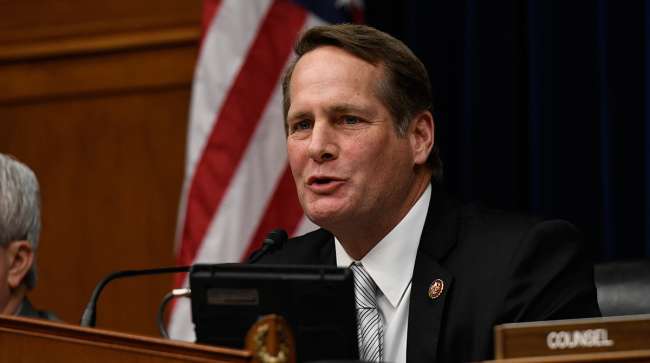Senior Reporter
Engineering Group ACEC Opposes Bill That Removes Regulations on Construction Material Suppliers

[Stay on top of transportation news: Get TTNews in your inbox.]
A group representing engineers is pushing back on recently introduced legislation that aims to develop projects through open competition among suppliers of construction materials.
In opposing the legislation in the U.S. House of Representatives, sponsored by Rep. Harley Rouda (D-Calif.), the American Council of Engineering Companies indicated its priorities include preserving a decision-making process that is based on professional engineering judgment, as opposed to legislative mandates.

“We feel that, really, the proper place and the proper decision point needs to be with professional engineers working with our clients to determine the right mix of materials in whatever it is we’re designing and building that meets the long-term needs of the project, the long-term needs of the clients, the long-term needs of the ratepayers and users that they serve,” Steve Hall, senior vice president for advocacy and external affairs at the American Council of Engineering Companies, told Transport Topics on Dec. 3.
Opponents also push back on the argument that localities have closed the bidding process to certain products. Local agencies set standards meant to ensure goods and services supported by taxpayers meet minimum performance requirements, they explained.
ACEC and other groups have taken issue with previous legislative efforts that sought to promote open competition in the realm of pipes and other materials.
“Imposing new materials mandates not only interferes with sound engineering judgment, but also with the ability of communities to manage their systems as efficiently as possible,” ACEC, as well as the American Water Works Association, and the American Society of Civil Engineers wrote to Congress in 2017. “Communities should remain free to adopt systemwide best management practices and uniform specifications in the development and maintenance of their water systems to maximize efficiency and control costs, rather than forcing them to comply with more red tape from above.”
Responding to opponents of his bill, Rouda, a member of the Transportation and Infrastructure Committee, told TT on Dec. 3: “The SMART Infrastructure Act explicitly gives states and localities the flexibility to select appropriate construction materials that meet project performance requirements.”

Hall
Rouda unveiled the measure in October with the aim of supporting innovation and open competition in procurement of materials for projects aided by federal funds. The measure would establish an interagency task force that would prepare a report about the procurement process, as well as the open competition for construction materials. A number of municipalities adhere to certain regulations pertaining to the types of materials for projects, which have led to increased costs, the sponsors explained.
Republican Reps. Brian Babin of Texas, and Ralph Norman of South Carolina, as well as California Rep. Grace Napolitano (D) are co-sponsoring the bill. The bill was referred to committee for consideration.
“Ensuring open and fair competition in the acquisition of materials for infrastructure projects is critically important,” Napolitano said.
“From the federal standpoint, two of the best things Congress can do to facilitate these much-needed improvements are to encourage competition and remove unnecessary regulations,” Norman added.
Endorsing the bill are the Associated Builders and Contractors, the Vinyl Institute, the Plastics Industry Association, the Leading Builders of America, and the American Chemistry Council.
In expressing his group’s support, American Chemistry Council CEO Cal Dooley said: “This legislation will simply and wisely let project managers consider all technologies and select the best solution for the job instead of being forced to use pre-selected materials.”
He added, “It’s estimated that adopting the open and competitive bidding reforms in this legislation could save over $370 billion on water infrastructure projects alone.”
Want more news? Listen to today's daily briefing:




